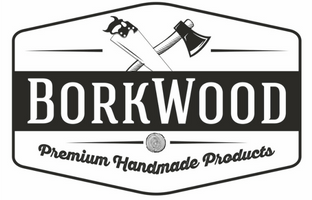In industrial settings, lubrication is more than just a necessity, it’s a critical factor in optimizing machinery performance and longevity. While off-the-shelf lubricants serve general needs, niche industrial applications often demand customized formulations tailored to unique operational challenges. Custom lubricants provide solutions for extreme conditions, specialized equipment, or sustainability goals, ensuring that industries achieve peak efficiency without compromising reliability.
Why Custom Lubrication Matters
Standard lubricants are designed for broad applications, but niche industries often face unique requirements that generic products cannot meet. For instance:
● Extreme Conditions: Some industries, such as aerospace or deep-sea exploration, operate in environments with extreme temperatures, pressures, or exposure to corrosive substances.
● Specialized Equipment: Custom machinery with unique geometries or operating parameters may require lubrication solutions that prevent wear while accommodating specific tolerances.
● Regulatory Compliance: Certain industries, such as food processing or pharmaceuticals, require lubricants that meet strict safety and hygiene standards, such as NSF certification for food-grade lubricants.
● Sustainability Goals: As industries adopt greener practices, custom formulations can include biodegradable or low-toxicity components to reduce environmental impact.
The Process of Creating Custom Lubricants
Developing a custom lubricant involves a collaborative process between the lubricant manufacturer and the client. This typically includes the following steps:
1. Needs Assessment: Understanding the application’s requirements, including operating conditions, environmental exposure, and performance expectations.
2. Formulation Design: Chemists and engineers design a base formulation tailored to the specific demands. This may involve selecting synthetic or mineral oils, along with additives for anti-wear, anti-oxidation, or corrosion resistance.
3. Testing and Validation: Prototypes are rigorously tested under simulated operating conditions to ensure performance meets or exceeds expectations.
4. Production and Quality Control: Once validated, the custom lubricant is manufactured and subjected to strict quality control to maintain consistency and reliability.
Examples of Niche Applications
Custom lubrication formulations are used across a wide array of industries, each with unique challenges:
● Aerospace: Lubricants must withstand extreme temperature fluctuations and perform reliably in high altitude conditions where conventional oils would degrade.
● Mining and Construction: Heavy-duty equipment operating under high loads and dusty conditions benefits from greases and oils designed for high pressure and contamination resistance.
● Food Processing: Custom formulations are required to meet hygiene standards while also resisting degradation from water, steam, and food acids.
● Renewable Energy: Wind turbines demand lubricants that maintain viscosity across temperature ranges and protect against corrosion in outdoor environments.
The Benefits of Custom Formulations.
Read also: Generator Troubleshooting
Tailored lubrication solutions provide significant advantages, including:
● Enhanced Performance: Custom lubricants reduce wear, extend equipment life, and improve efficiency under challenging conditions.
● Cost Savings: By preventing downtime and minimzing maintenance, they save industries money in the long term.
● Regulatory Compliance: Customized products ensure adherence to industry-specific standards, avoiding potential penalties or liabilities.
Future Trends in Custom Lubrication
As industries evolve, so too does lubrication technology. Innovations such as smart lubricants with embedded sensors for real-time monitoring are emerging. These technologies, combined with sustainable and bio-based formulations, are poised to revolutionize niche industrial lubrication.
Conclusion
Custom lubrication formulations offer a critical edge for industries facing unique challenges. By tailoring solutions to specific needs, they not only enhance performance but also ensure compliance, efficiency, and sustainability. In the complex world of niche industrial applications, custom lubricants are the key to unlocking optimal machinery performance.
-
Ava Stone is a writer and strategist exploring the intersection of technology, business innovation, and modern lifestyle. With a background in digital trends and startup ecosystems, she helps readers navigate the future with clarity and confidence. Her work blends practical insights with forward-thinking ideas, making complex topics accessible and engaging.
View all posts

